This the second in a series of articles that examine the Founders’ opinions on how the Article V Convention process should have clear focus. The US Constitution’s Article V provides two methods for proposing constitutional amendments. The Compact for America is an initiative to employ the method that has not been used: a convention of […]
Compact for America Solution to Article V Convention Issues According to the Founders, Part II
Compact for America Solution to Article V Convention Issues According to the Founders, Part I
The goal of the Compact for America (“CFA”) initiative is for the states to propose and ratify the powerful balanced budget amendment that is contained in the Compact for a Balanced Budget into the United States Constitution in as little as one session year, with a target of July 4, 2017, and a “do or die” date of April […]
The Seventeenth Amendment: Destroying State Sovereignty
From 1789 to 1913 the power to choose United States Senators was vested by the Constitution in the State legislatures. The Seventeenth Amendment altered the process by providing for direct election of Senators by the people. This fundamentally altered a carefully balanced power structure built into the unamended Constitution that served important purposes: to limit federal power […]
21st Amendment Repeals 18th and Prohibition: Restriction on Liberty Fails
The only constitutional amendment ever repealed was the 18th which had ushered in Prohibition. The 18th Amendment was also the only amendment to restrict individual liberty rather than restrict government power.1 As the only such restriction, it was the only constitutional amendment at odds with the unalienable rights outlined in the Declaration of Independence and contrary to the natural […]
Constitution’s 22nd Amendment: Term Limits for the President
In 1797 President George Washington set a precedent that would not be broken for 143 years. He retired from office after two terms. In 1940 Franklin Roosevelt ran for and was elected to a third term. Roosevelt was the first to serve more than eight years, and his success resulted in the Constitution’s 22nd Amendment limiting […]
Constitution’s 26th Amendment: Lowering the Voting Age to 18
“For years our citizens between the ages of 18 and 21 have, in time of peril, been summoned to fight for America. They should participate in the political process that produces this fateful summons. I urge Congress to propose to the States a constitutional amendment permitting citizens to vote when they reach the age of […]
Fifteenth Amendment: Power to Congress over Voting Discrimination
The Civil War had been won by the North, but there was still much to do, as both legal and extra-legal means were used to prevent freed slaves from voting. Between the end of the Civil War in 1865 and 1870, the US Constitution was amended three times. The Thirteenth, Fourteenth and Fifteenth Amendments are collectively known as […]
US Constitution’s Thirteenth Amendment: Legal Abolition of Slavery
Abraham Lincoln issued The Emancipation Proclamation on January 1, 1863 freeing many slaves. Its scope was limited and its true legality unclear. Lincoln had freed the slaves in areas of rebellion with an executive order. His constitutional authority to do this was in question. For slavery to be abolished with certainty in the United States, a constitutional amendment was […]
The Constitution’s Sixteenth Amendment: Result of Political Miscalculation
When April 15th rolls around as they labor toward the filing deadline for income taxes, Americans would be forgiven if they were to become nostalgic about Patrick Henry’s opposition to the Stamp Act of 1765 and his call for the death of the King[1] because of a required government stamp on most documents in the […]
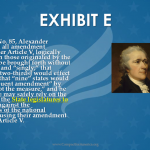

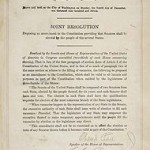
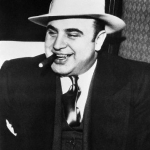
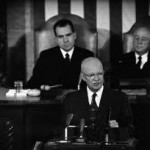

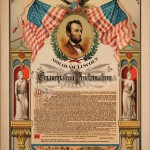







Compact for America Solution to Article V Convention Issues According to the Founders, Part III
The preceding Part I and Part II, containing Exhibits A through G overwhelmingly establish the laser-focus of the Compact for America approach on advancing and ratifying a specific amendment is four-square what the Founders expected from Article V. Simply put, the Founders clearly meant for the Article V convention’s agenda to be set in fine detail […]